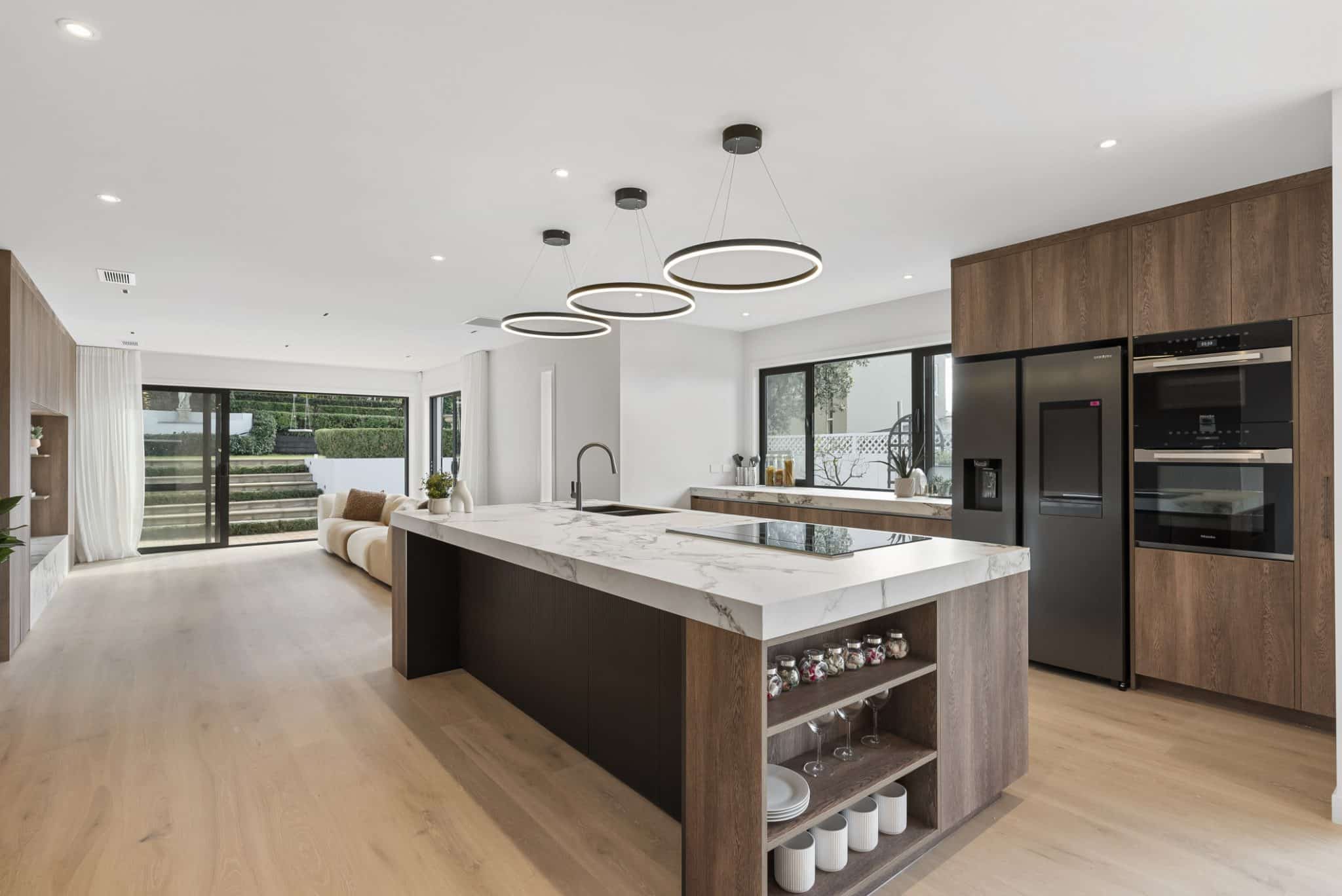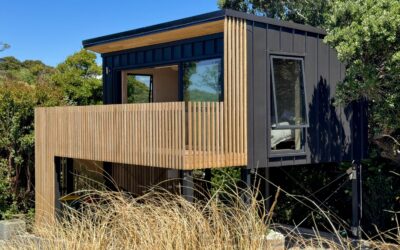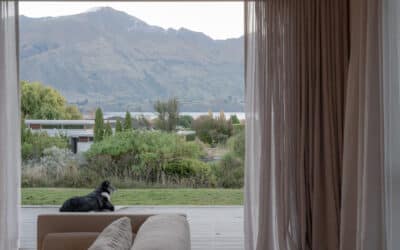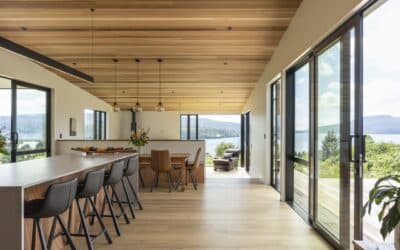Kitchen Or Flooring First?
This is a very common question that we’re asked time and again. It is actually possible to install the flooring both before or after the kitchen, depending on the intended installation method; floating or glued down.
Floating Installation
If you’re floating your timber or laminate flooring then you should always install the kitchen first and install the flooring around the kitchen units. This allows free movement of the floor boards as they expand and contract with humidity fluctuations. If the kitchen was sitting on top of the floating floor its weight may restrict the movement of the floorboards and potentially cause floor boards to start lifting. The end panels of the cabinets can be undercut so the flooring can slide underneath, for a clean finish. Flooring is installed just under the kick panels and all the way under any appliances (that are not built-in). The kick panels should be left off until after flooring is installed and then put in place last.
Glued Down Installation
For glued down wooden flooring you can either install around the kitchen cabinets or you can install the flooring first. We highly recommend installing the flooring first; this ensures a premium finish at the bottom of cabinet ‘end panels’ as your installer won’t have to cut into them on-site. It also ensures boards are installed all the way to the walls, so if you do happen to modify your kitchen in future for whatever reason, you won’t have to install any more flooring at a later date. For more indepth information about installing engineered flooring, you might enjoy this article: The Technicalities of Timber Flooring Installation.
Extra Tip for Installing in a Kitchen; Understanding Tolerances
For either method, understanding the tolerances and standards for timber flooring is important. A subfloor that is not within the standard tolerances is likely to cause performance issues. For a floating floor this is particularly important. The impact of flooring installed outside of tolerances or standards may present as:
- Uneveness relative to kitchen joinery, skirting or doors
- Hollow spots in the floor
- Areas that creak
- “Springyness” in some parts of the floor
As such, choosing the right professional flooring installer is critical to avoid these issues. See more information about the tolerances of timber flooring here.
We have experience with both floating and glue-down wood flooring installation methods, so please feel free to contact us for obligation-free advice.
Product: Foundation Collection // Empire Oak
There are a series of other articles which may also interest you including;
- Floating vs Glue Down
- The Differences Between Oiled and Lacquered Timber Floors
- What is E3 and How Does it Impact Your Timber Flooring Project?
Vienna Woods is a specialist natural timber flooring supplier in Auckland, NZ. We love to see quality timber floors enhance the homes of New Zealanders. For information about our products and services, you can contact us here.



